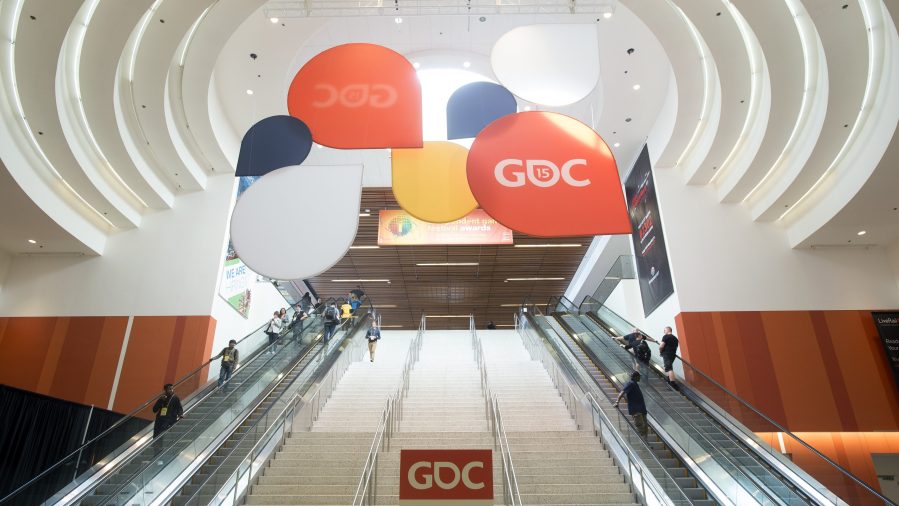NFTs in video games? Skeptics push back at developers conference

Video game developers, programmers and artists are gathering in San Francisco this week for the first in-person Game Developers Conference since 2019.
One topic getting a lot of attention is non-fungible tokens — digital certificates showing ownership of digital assets like a picture or video. It’s a topic for Quality Assurance, where we take a closer look at a big tech story.
Marketplace’s Kimberly Adams spoke with Stephen Totilo, who covers gaming for Axios and is attending the conference. He explained how some want to use NFTs in gaming. The following is an edited transcript of their conversation.
Stephen Totilo: Think about it like this: Games are full of virtual things — characters, land, items, the clothing your character wears. NFT blockchain folks say, “imagine being able to own those virtual items. And then imagine being able to sell them, maybe even transfer them over to another game.” The skeptics, of which there are many, including many gamers and including many game developers here at GDC, push back and say, “Well, two things. One, we had virtual goods that people could buy and sell long before NFT and blockchain came around. Why do we need this new tech that has some questionable environmental impact? Two, show us how this can actually work, because some of this hype doesn’t really measure up.”
Kimberly Adams: I also understand that cloud technology in gaming is quite a big part of the discussion.
Totilo: People have been pushing the cloud for a while. This is the idea of computing that happens away from whatever device that you have. People are constantly promoting the idea that maybe you won’t need to have a console or a computer at home in order to play the next new game. Instead, you could stream that game through whatever screen or device that you have. But the actual processing that’s happening to make that game run happens remotely. That’s a model that’s been talked about for a while. What’s new here at GDC is the idea of how the cloud can enable game developers to make games more remotely. Remote work is something that’s much more top of mind for lots of people because of the pandemic. And the gaming industry is one that has had a great expansion of remote work, and a big rethinking of what’s necessary and isn’t in terms of in-person and in-office presence. There’s talks at this year’s GDC, that my colleague Megan Farokhmanesh has been covering, about the four-day workweek. You have independent studios and one large studio, Eidos-Montréal, who have committed to the four-day workweek and say it has not impacted the quality of the work that they’ve made. And so the four-day workweek is also a hot topic here at GDC.
Adams: You’re talking about workplace culture in the gaming industry. I was looking at your Twitter feed, and you said that the very first panel that you attended that was at max capacity before you got there was about workplace culture. Can you talk about that?
Totilo: The panel was a roundtable to discuss strategies for dealing with gender discrimination, for women to speak about their experiences being harassed and discriminated against as workers in the games industry and ways that women can can push back. For quite a few years now, we’ve seen a greater awareness of what people who make games have to deal with. There’s for decades been rumblings of issues of gender discrimination, issues of harassment. We’ve seen reckonings coming to the largest of game companies — Activision Blizzard, famously, last summer sued by the federal government and the state of California, also facing [a Securities and Exchange Commission] investigation, all over harassment, alleged harassment, discrimination involving women’s experiences. So I took it as both a good sign and, in some ways, with sad resignation that a panel like that was filled to capacity. It shows how necessary it is.
Adams: What has this conference revealed to you about what we can expect in the year ahead both for gaming technology and workplace culture in the industry?
Totilo: A conference like GDC is a moment in time to pause things, to step outside of the day-to-day grind of what they’re doing. And so I think, and expect, a lot of people to come out of GDC hopeful about how gaming can change and improve its culture, how we can get better at respecting the labor of its workers. We will see where that high that comes out of GDC meets the realities of what people face in their day to day.
Related links: More insight from Kimberly Adams
Stephen Totilo and his colleague Megan Farokhmanesh are including coverage of the conference in their Axios Gaming Newsletter.
Totilo also has a piece on how designers are rethinking romance in gaming. Right now, a game might say: “click here to flirt.” But where’s the romance in that? Make people work a bit for it, you know?
And if you’re also interested in learning more about the four-day workweek in the gaming industry, Protocol has an article about an indie game developer in Montreal that experimented with it, made it permanent and now is probably never going back to a five-day workweek. Another gaming studio executive told attendees at the GDC conference the four-day workweek increased morale and reduced absenteeism.
The future of this podcast starts with you.
Every day, the “Marketplace Tech” team demystifies the digital economy with stories that explore more than just Big Tech. We’re committed to covering topics that matter to you and the world around us, diving deep into how technology intersects with climate change, inequity, and disinformation.
As part of a nonprofit newsroom, we’re counting on listeners like you to keep this public service paywall-free and available to all.
Support “Marketplace Tech” in any amount today and become a partner in our mission.












